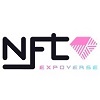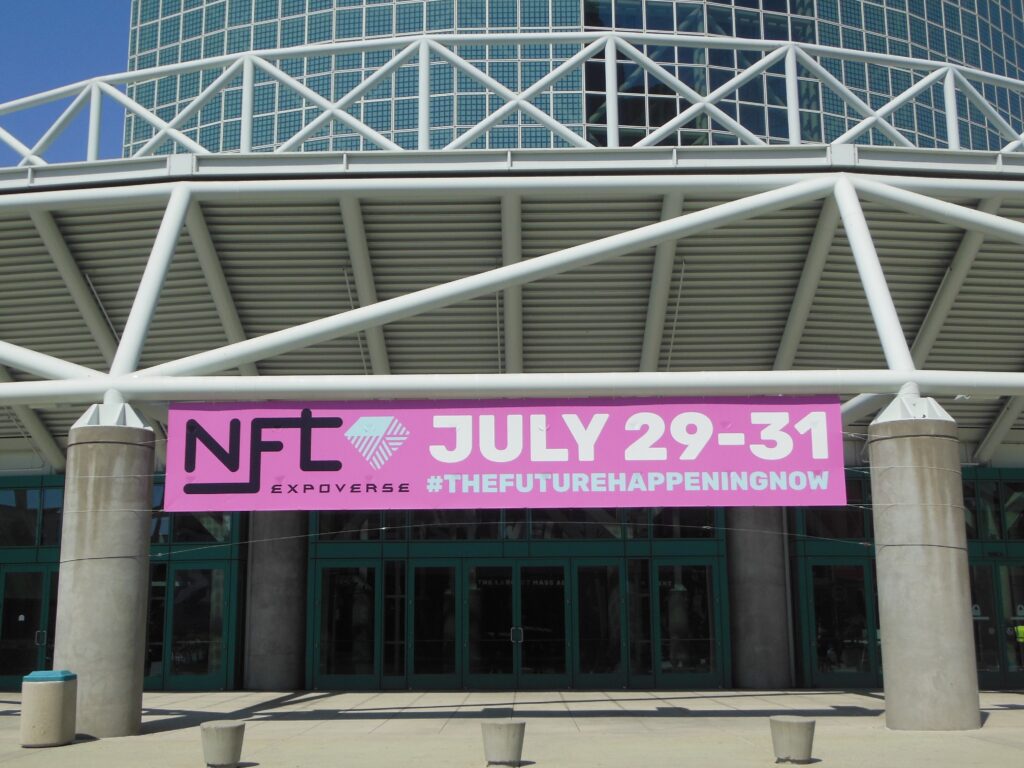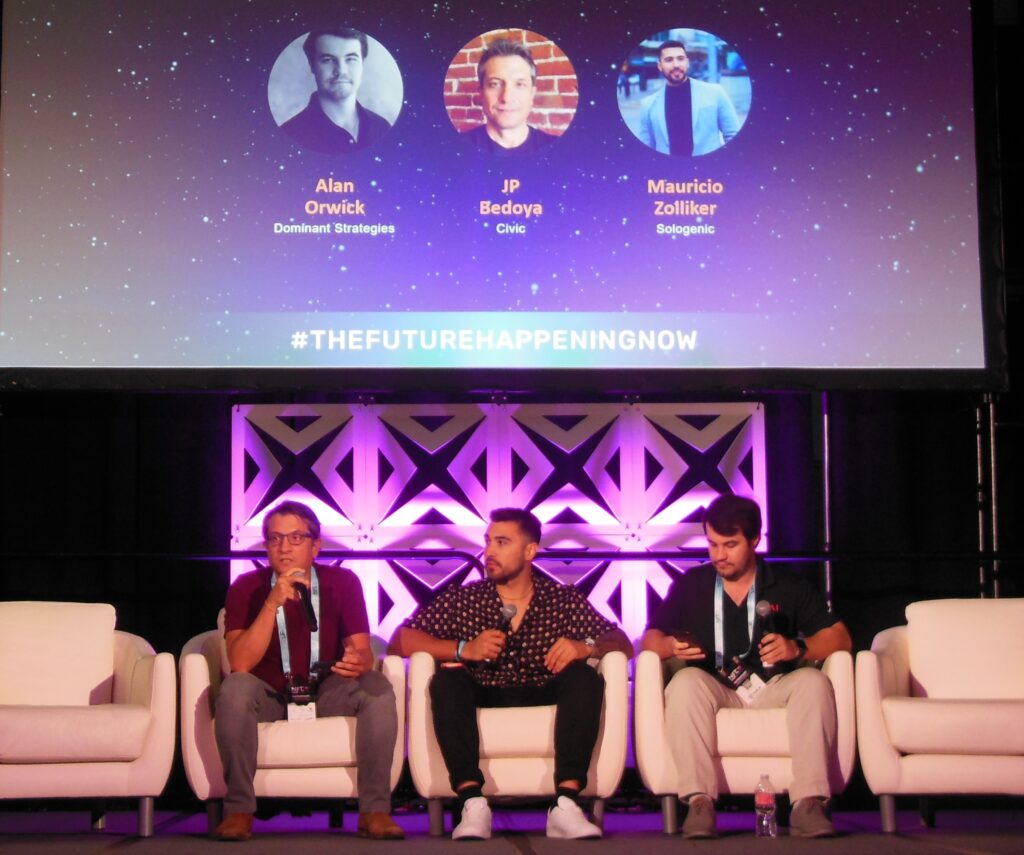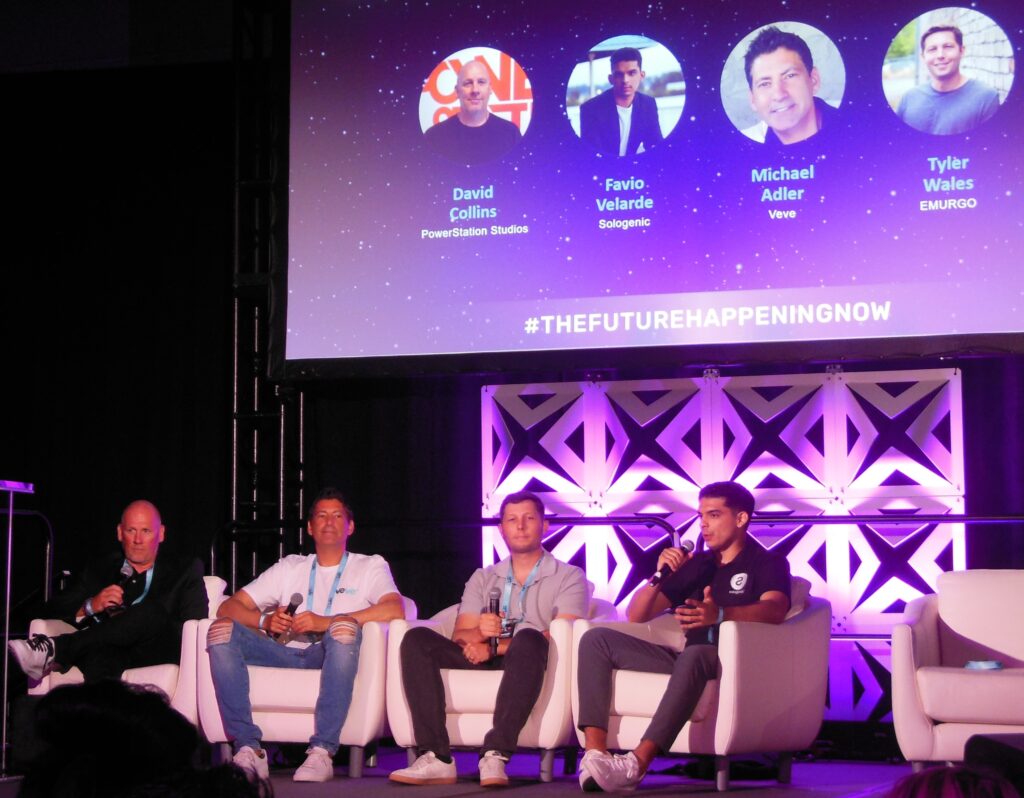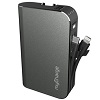NFT Expoverse Los Angeles: Day 2
NFT Expoverse Los Angeles: Day 2
Article by Angie Kibiloski
After an informative 1st day at NFT Expoverse Los Angeles, I was hyped for another day filled with great panel discussions. Though I didn’t see as many that sparked my interest on Day 2 (July 30th, 2022), there were still a few that stood out. I’ll talk briefly about 3 of them: “How NFTs Will Shape the Future of Digital Identity”, “The Future of Gaming: What You Need to Know”, and “How Music Has Evolved to Be Metaverse-Ready”.
The 1st panel, “How NFTs Will Shape the Future of Digital Identity”, talked about various forms of digital identity, creating an identity that’s separate from your real world one, how we can build trust in an online community around the personas we create, and how we might be able to use those identities, backed up by verifiable NFTs, in lieu of our real-life IDs in the future. Digital identity, at the most basic, just means how you’re individually known online, whether that’s on social media, in a game, or in the Metaverse. You may choose to present yourself exactly as you are in real life, or you may want to be more anonymous, crafting a new name and image for yourself. Either way, keeping this identity unique to yourself is important, and will be even more so as the Metaverse grows.
With NFTs, you can build your identity however you like, in a way that represents your personality, values, hobbies, etc., and have the combination of those elements be uniquely you, by truly owning those assets on the Blockchain. By having all of your assets on-chain, you can build trust in your chosen identity through transparency, and in the future, your transaction history may be a way to officially verify yourself on sites that currently require government issued identity verifications. Aside from the potential for this utility, owning an avatar that is unique to you is just fun, especially in the gaming and Metaverse spaces. An obstacle for the technology at the moment, and something that was touched on yesterday as well, is interoperability between Blockchains. Developers either need to create ways for all the chains to communicate with each other, so NFTs (and digital identities) can seamlessly travel between them, or the Metaverse itself needs to become chain agnostic, a meeting place for NFTs from all chains to mingle.
The 2nd panel, “The Future of Gaming: What You Need to Know”, was all about the evolving landscape of games, and how despite the pushback from old-school gamers over NFTs entering their world, future gamers will accept it as the norm, and welcome the added benefits that come with truly owning assets within a game. Currently, if you buy something in a game, you’ve paid for it, but it isn’t really yours. The game company can decide to remove that asset from the game mechanics, or the game itself can cease to be compatible with your devices. Either way, you lose your asset (and money). If that asset was an NFT, you would truly own that asset, as a token on the Blockchain, and the company could not revoke it from your token wallet. Even if those situations never arise, there are plenty of other benefits to a game asset being an NFT.
Games could issue NFTs to players for being early adopters of their game, or completing certain achievements while playing. They could then reward those loyal or active players with items, in-game currency, or even create a DAO governance and let those players have input on developments in the game. Maybe you could take an achievement token out of the game, since it lives in your own wallet, and proudly display it to others in the Metaverse. These are just examples of ways NFTs could be implemented in non-NFT focused titles.
There are also games that are specifically designed as NFT titles, and usually have Play-to-Earn mechanics, where you either grind all day to earn tiny bits of crypto, or you stake your NFT items to passively earn crypto while you’re not playing. These aren’t necessarily fun, and crypto-centric games need to move in a different direction to build a wider user base, and keep the existing players interested. Ideas for upcoming games might be to allow more types of interactions within the game to earn tokens, so it’s more just a part of the wider game play, create more incentives to use the currency within the game it was earned instead of cashing out to fiat currency, and focus more on making a good game before creating a token, so it starts from a gaming perspective instead of a financial one.
The 3rd panel, “How Music Has Evolved to Be Metaverse-Ready”, was an interesting look at how musicians can take their power back from the music labels, and retain more ownership of their licenses, rights, and royalties. The way it works now, when a musician signs a contract with a label, that label owns the rights to their music, getting a portion of their royalties, and often the masters of their recordings for many years after their initial contract has expired. When a fan buys an album, or a song gets streamed, the profit from that sale goes to the label first, and an artist can wait for months sometimes to get their cut.
If that artist had released their album as a collection of NFTs, which they can do independently without a label, they would get the profits from a sale directly into their wallet as soon as it happened, and not have to share a percentage with anyone else. By being in control of their own product, they cut out the middleman who takes a share, and the time it takes to get paid. The trade off is that they lose the marketing and distribution machine of the big labels, and would need to put in a lot more work themselves to get widely seen and promoted.
Some (smaller) forward thinking labels are coming around to the idea of NFTs themselves, and leaning more towards a structure of supporting artists with their marketing services and away from the standard model of owning an artist’s work with rights to every sale. These labels that acknowledge a future where artists demand ownership of their own work, and find other ways to be a part of the process will thrive, while the labels who stick to the old structure will be left behind.
It’s difficult to distill a 45-minute panel into a paragraph, but I hope I’ve at least portrayed the gist of these discussions here. Once again, I may be taking a deeper look at these topics with future articles, as the Web3 space developes even more. In the meantime, look out for my coverage of Day 3 of NFT Expoverse Los Angeles. You can also visit https://nftexpoverse.com to find out more about all the speakers and exhibitors who attended the 3-day event.

